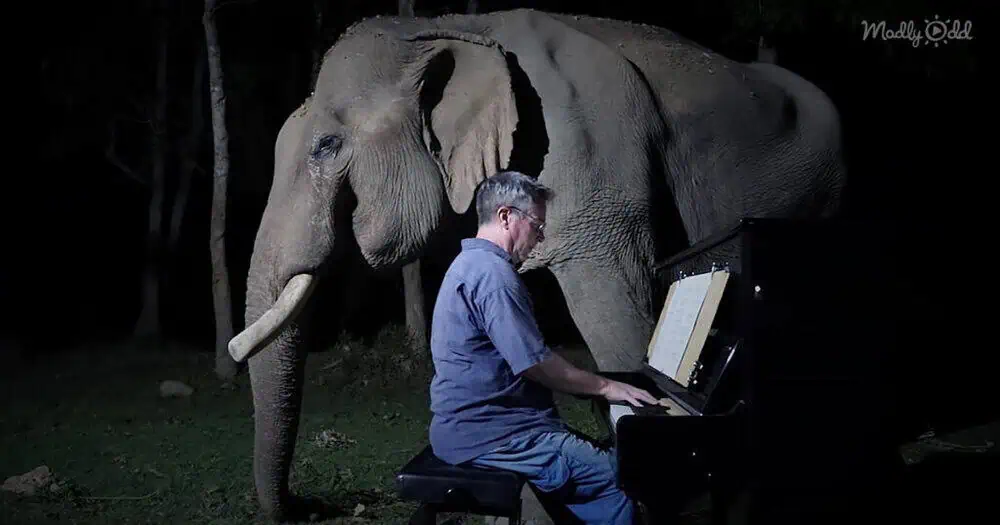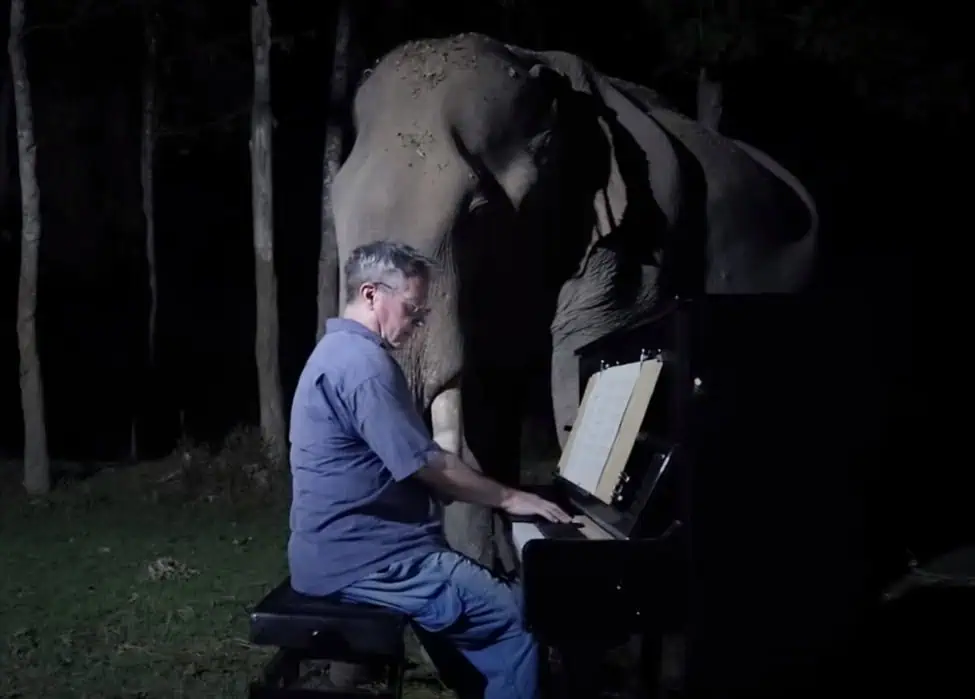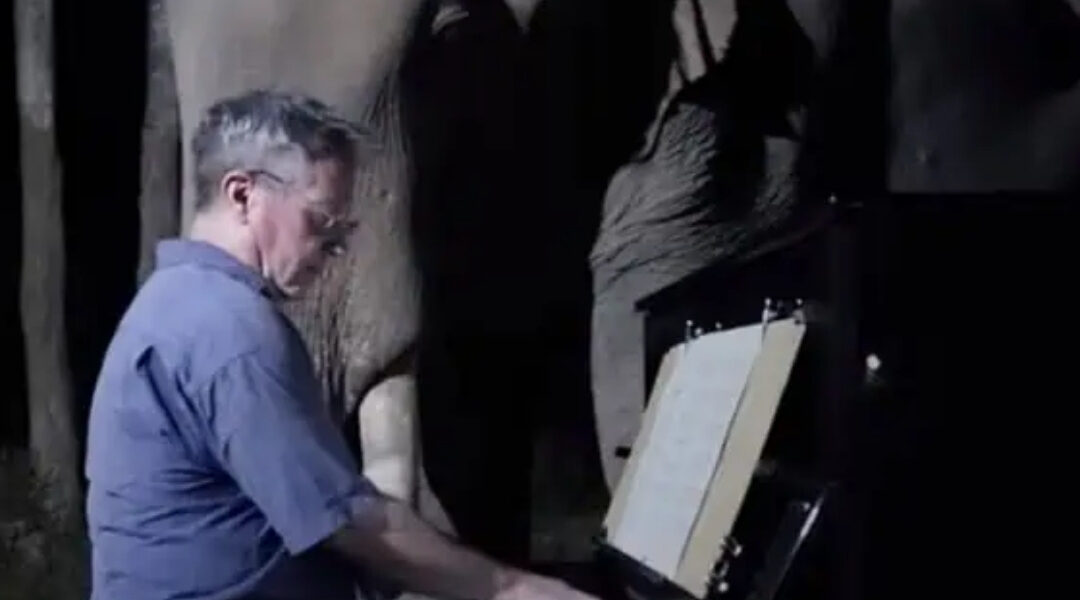In the stillness of a Thai forest, where the sounds of nature blend into a soft hum of night, a grand piano stood beneath the trees — its polished surface reflecting the moonlight like a quiet promise. Seated before it was Paul Barton, a British classical pianist known not for performing in concert halls, but for playing to the most unexpected audiences — elephants.

On this particular evening, Barton’s audience was Mongkol, a 61-year-old elephant with wise, weary eyes and a lifetime of stories written in the creases of his skin. Mongkol had once worked in the logging industry, hauling massive tree trunks through the jungle. Years of labor had left him scarred and tired. But in his retirement, he had found peace at an elephant sanctuary — a place of freedom, safety, and, on nights like this, music.
Barton and his wife had been working with rescued elephants for years, believing deeply in the healing power of sound. “Music can reach places that words can’t,” Barton once said. “It speaks directly to the soul.” So, when he brought his piano into the forest that night, it wasn’t just to play — it was to offer Mongkol a kind of peace words could never give.

The air was cool and heavy with the scent of rain-soaked earth as Barton began to play the first notes of Beethoven’s “Moonlight Sonata.” The melody, slow and tender, seemed to melt into the night air.
At first, Mongkol stood at a distance, his massive silhouette barely visible among the trees. Then, slowly, he began to approach — his ears flapping gently, his steps quiet despite his size. When he reached the piano, he stopped and simply listened.
The soft strains of Beethoven wrapped around him like a lullaby. His trunk swayed with the rhythm, his tail flicked lightly, and his body rocked in a slow, instinctive dance. To anyone watching, it looked as if Mongkol was letting go — of fear, of memory, of everything that had once chained him.
Barton played on, his hands moving effortlessly over the keys. There were no fences, no stage, no applause — just two living beings sharing a space of peace.
When the final notes faded into silence, Barton looked up. Mongkol’s eyes were half-closed, his great head lowered. The pianist stood and approached the elephant, resting a hand on his trunk. Mongkol responded by curling the tip of it gently around Barton’s arm — a gesture of trust, of recognition.
In that quiet, wordless exchange, the bond between them felt unbreakable.

Moments later, as if the music had finally loosened the weight he’d carried for decades, Mongkol sank slowly to the ground and lay down. His breathing slowed. His body relaxed. And there, beside the piano under the stars, the old elephant drifted peacefully into sleep.
Barton stood watching him, emotion clouding his voice as he whispered, “Goodnight, my friend.”
For him, it was a reminder of why he began this unusual journey years ago — to bring music to elephants who had endured lives of suffering. He’d seen firsthand how the melodies soothed them, how they’d listen, sway, and sometimes even cry. It was as if the notes reached a place deep within them — a place untouched by cruelty, still capable of peace.
“Music,” Barton later said, “doesn’t belong to humans alone. It belongs to every heart that can feel.”
The video of that night, of Mongkol listening to Beethoven in the moonlight, soon spread around the world. Millions watched in awe as the massive animal responded with such tenderness — proof that empathy and connection aren’t limited by species.
For those who saw it, it was more than a touching scene. It was a lesson — that gentleness heals, that compassion transcends language, and that beauty can exist even in the quietest corners of the wild.
And for Mongkol — the elephant who once knew only toil and pain — it was a lullaby of freedom, a song of comfort, and perhaps, the first truly peaceful sleep of his long and storied life.




